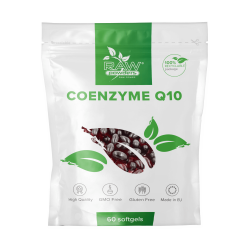THE MOST IMPORTANT QUESTIONS ABOUT ASHWAGANDHA DOSAGE

Ashwagandha is one of the most important medicinal plants in Chinese medicine and Ayurveda. The active ingredient, which is extracted from the roots and leaves of the small plant, has been valued for its anti-inflammatory, calming and sleep-promoting effects for over 5000 years and is considered a fountain of youth for the body and mind. The areas of application and uses of Ashwagandha are diverse.
But what do you have to consider when taking Ashwagandha? How much Ashwagandha to take? Should you take Ashwagandha in the morning or at night? We will answer these questions in this blog.
What do you need to know about the dosage of Ashwagandha?
Ashawanga is mainly available as a powder and capsules. Ashwagandha capsules are easy to use - the dosage is constant and does not always have to be measured out yourself. On the other hand, Ashwagandha powder dosage can be adjusted more precisely and depending on individual needs. For nootropics beginners, Ashwagandha capsules are still recommended. The dosage always remains the same and, depending on the provider, is around 250 - 500mg per serving.
1. Ashwagandha dosage for inflammation and infection
- Daily dose: 250 - 500mg
- Duration: 1 to 2 weeks
2. Ashwagandha dosage for anxiety and stress
- For a beginner: 125 mg to 600 mg per day
- Maximum daily dose: several doses up to 5000mg / 5g
- Duration: 1 - 3 months
3. Ashwagandha dosage for sleep
- 1 (relatively high) dose in the evening 500mg - 1500mg
4. Improvement of memory performance
- Daily dose: 500 - 600mg
- Duration: at least 4 weeks
5. Ashwagandha to lower blood sugar levels
- Daily dose: 2-3 x 250mg
- Duration: at least 4 weeks
What else do you have to consider when taking Ashwagandha?
Which Ashwagandha daily dose is suitable depends above all on the goals or diseases mentioned above that you want to treat with it.
In addition, it is also crucial when and how you take the root extract. In the evening? In the morning? Before or after the meal? Several times throughout the day?
If you take Ashwagandha as a general dietary supplement without specific symptoms, 250 to 500mg Ashwagandha per day are ideal. It is up to you when you consume these during the day. Most users distribute two doses in the morning and the evening. The desired effect should appear after 4 weeks at the latest.
By the way, Ashwagandha should be taken on an empty stomach or 2 hours after a meal. It is the quickest way to absorb the active ingredient.
In addition, the intended use also plays an important role at the time of use:
1. For sleeping
- Complete daily dose approx. 30 minutes before going to bed (approx. 500mg - 2500mg)
2. Reduction of stress
- 2-3 doses of 250 - 500mg each spread over the day (e.g. morning, noon, evening).
3. Depending on the situation
- 1 capsule á 500mg, 1 hour before a stressful or fear-inducing situation (e.g. lecture, visit to the dentist, etc.)
Of course, these are guidelines. Everyone reacts differently to nootropics.
If you get too tired in the morning with a dose that is too high, reduce it. The onset of action can also be faster for some and slower for others.
As with all dietary supplements, the following applies: start with the lowest possible dose and wait for the body to react. Then you can slowly increase or even reduce the dose if necessary. The ideal dosage and distribution over the day should be individually adjusted.
Is Ashwagandha overdose dangerous?
Inadvertent overdose is unlikely, especially when taking capsules. However, higher doses should be spread over the day or (to promote sleep) only taken directly before going to bed. After all, in Europe the remedy is also called sleeping berries - too high doses of Ashawanga during the day can make you sleepy, which, of course, would be dangerous at work or especially when driving a car. Anyone concerned about an Ashawanga overdose or experiences severe side effects should always seek medical help immediately.
Ashwagandha is a natural active ingredient in traditional medicine and is generally considered to be particularly well tolerated. However, pregnant women and people with autoimmune diseases should avoid it. You should also consult the treating physician in advance with certain medications.
You can read all about possible side effects with Ashwagandha in our blog.
Sources:
https://www.brainperform.de/ashwagandha-dosierung/
https://ashwagandha-erfahrung.de/ashwagandha-dosierung/
https://www.ashwagandha-infos.de/ashwagandha-einnahme-morgens-abends/
https://de.wikipedia.org/wiki/Schlafbeere
https://www.zentrum-der-gesundheit.de/krankheiten/psychische-erkrankungen/angst/angst
Text author:
Kay Svegler
Communications, PR, American Studies, University of Leipzig
Journalist and freelance writer (e.g. Süddeutsche Zeitung, BILD, MDR etc.)
Former Senior PR Manager for Fischer Appelt, Sustainability and Diversity Manager for DKB





_front%20(1)-250x250.png)



_front%20(1)-250x250.png)

-(NN)_front%20(1)-min-250x250.png)

_front%20(1)-250x250.png)


_front%20(1)-min-250x250.png)
_front%20(1)%20(1)-250x250.png)
_front%20(1)-250x250.png)








_front%20(1)-min-250x250.png)
_front%20(1)-min-250x250.png)

